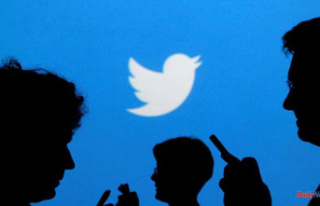A priori, everyone assures him: the disaster scenario experienced on Tuesday by the passenger of United Airlines, violently expelled from a plane, could not occur in France. However, the practice of overbooking (commonly called "overbooking") is common practice in all airlines. What then are the rights of air transport users?
Although it should remain marginal, the commercial technique which allows companies to sell more seats than the aircraft contains is authorized, and governed by European legislation for all flights to or from a country of the EU. It is estimated that 5% of users do not show up at the boarding gate (due to illness or other unforeseen circumstances). Airlines therefore have the right to make up for their absence.
READ ALSO >> United Airlines finally apologizes to the passenger expelled from a plane
Prohibiting overbooking would automatically increase the price of the ticket, in any case those of economy class, since it is above all the latter that is concerned. “Overbooking allows us to optimize the filling of our planes”, we say at Air France. "If it is well managed, all users come out winners."
It is on a specific point that the misadventure experienced by the passenger of the United Airlines flight departing from Chicago (United States) could not occur in France: any passenger on board an aircraft is guaranteed to continue his journey. "When we saw the images, we were hallucinated", confides to L'Express the employee of a European company. "This kind of incident is unheard of in France."
In the event of overbooking, if passengers have to take another flight, they must indeed be informed before going through the boarding gate. As far as possible, the choice of passengers who are "victims" of overbooking is made on a voluntary basis, for example by means of a call to waiting users. If no one volunteers, a draw may take place. In any case, the company cannot explain that no other flight is available: if necessary, it has the duty to board you on the flight of another company. Still to be compensated accordingly...
"On the possibilities of compensation, consumers do not know enough about their rights", regrets UFC-Que Choisir, which estimates that only 10% of users are well compensated in the case of overbooking, delay or flight cancellation and proposes online assistance for claiming compensation - with a 25% commission to the consumer association.
In concrete terms, the user who is offered to board another flight must at least be covered for the costs incurred (catering, accommodation if the replacement flight takes place on another day) and be compensated, of €250 (for a flight of less than 1500 km) at €600 for a long-haul flight. Reimbursement must be made in cash or by bank transfer, but not in the form of travel vouchers... unless the traveler accepts it, in which case the company can make an extra effort: at Air France, we give the example of compensation of €800, in credits, in the case of a Paris-New York flight. In the case of the molested passenger, United Airlines initially offered compensation of $400 and one night's hotel. Faced with the refusal of the passengers to leave the aircraft, she had bid $800, which had not been enough to convince anyone.
But when it comes to low-cost airlines, sometimes you have to insist on being compensated accordingly. "It's not because we are dealing with a low-cost company that we have fewer rights!" insists Anne-Sophie Trcera, legal delegate to the National Federation of Transport User Associations (Fnaut), contacted by L'Express. "It is then a question of not being impressed, of obtaining information and keeping the material proof of all the costs encountered." Even if it means filing a complaint after the fact with the Directorate General of Civil Aviation (DGAC).
Still, the conditions of compensation can be comfortable, such as access to a three-star hotel or more to wait for the next flight. It also depends on his own ability to negotiate his fate with the airline staff... This may explain why some users, in no hurry to return, spontaneously offer to take advantage of this possibility in order to extend their vacation a little.












